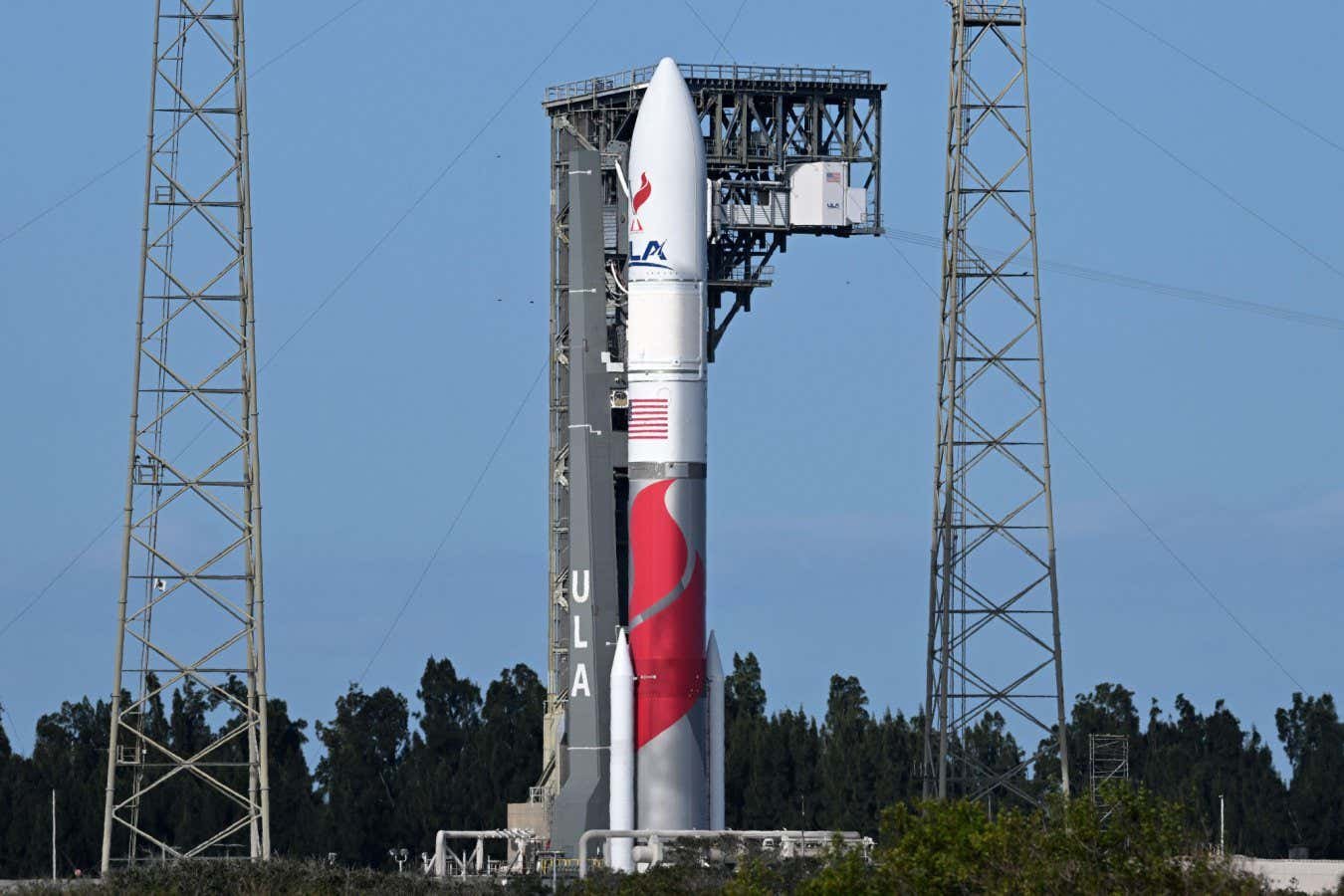
A United Launch Alliance Vulcan rocket is being prepared to launch from Cape Canaveral in Florida
UPI / Alamy Stock Photo Provider: Alamy Live
The flurry of missions to the moon in 2024 is starting big with the first launch of the new Vulcan rocket. The launch, planned for 8 January, will carry Astrobotic’s Peregrine lander to the moon in the first mission of NASA’s ambitious Commercial Lunar Payload Services (CLPS) programme.
Vulcan was built by the United Launch Alliance (ULA), a collaboration between Boeing and and Lockheed Martin. Prior to the arrival of SpaceX on the scene, ULA was a dominant force in the US space launch business, but in recent years SpaceX has performed the majority of US launches.
Vulcan could be ULA’s opportunity to snatch back some of that market share, which is particularly important for it because the company is now for sale. Potential buyers include Jeff Bezos’s space flight company Blue Origin, among others. If all goes well with this launch, there are six more planned for 2024.
The launch is meant to shuttle the Peregrine lander to the lunar surface. If it is successful, this will mark the first time a private company has successfully landed on the moon. The lander carries a variety of scientific instruments, including sensors to study lunar water and radiation on the surface of the moon, both of which are key to understand for future human exploration. The CLPS programme includes many other moon missions in the coming years, which will make complementary measurements to prepare for a sustained human presence on the moon.
The rocket also has two particularly controversial payloads aboard – capsules of human cremains being sent to space by a company called Celestis, which provides what it called “memorial spaceflights”. One of these capsules contains the ashes of Star Trek creator Gene Roddenberry and actors James Doohan and Nichelle Nichols, due to be placed in orbit around the sun, and the other contains other human ashes bound for the moon.
Buu Nygren, the leader of the Navajo Nation, sent a letter to the US government objecting to the inclusion of this capsule, stating: “The placement of human remains on the moon is a profound desecration of this celestial body revered by our people.” NASA responded that because this is a private mission, the agency does not have power over what payloads it carries.
Topics:

Felecia Phillips Ollie DD (h.c.) is the inspiring leader and founder of The Equality Network LLC (TEN). With a background in coaching, travel, and a career in news, Felecia brings a unique perspective to promoting diversity and inclusion. Holding a Bachelor’s Degree in English/Communications, she is passionate about creating a more inclusive future. From graduating from Mississippi Valley State University to leading initiatives like the Washington State Department of Ecology’s Equal Employment Opportunity Program, Felecia is dedicated to making a positive impact. Join her journey on our blog as she shares insights and leads the charge for equity through The Equality Network.




